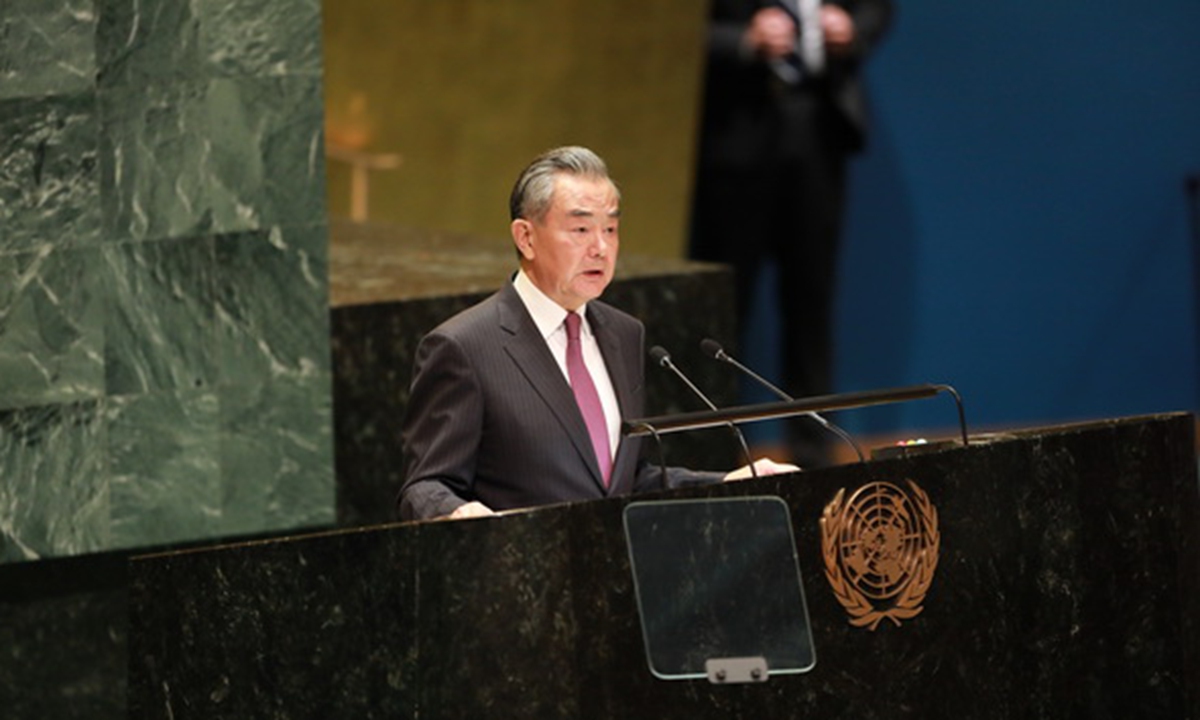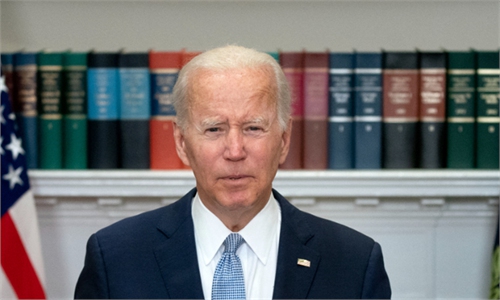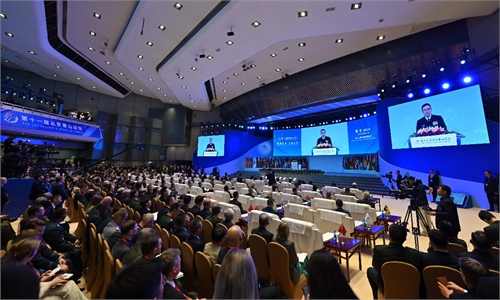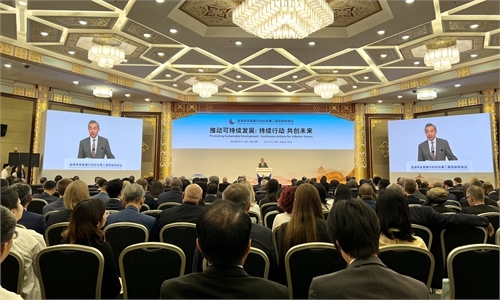Chinese FM reiterates dedication to peace at UNGA
Speech reaffirms nation’s perspective on security, devt, civilization: experts

Chinese Foreign Minister Wang Yi, also a member of the Political Bureau of the Communist Party of China Central Committee, speaks at the general debate of the 79th session of the United Nations General Assembly on September 28, 2024. Photo: Chinese Foreign Ministry
Chinese Foreign Minister Wang Yi gave a speech at the general debate of the 79th session of the United Nations General Assembly (UNGA 79) in New York, reiterating China's dedication to peace as the path to addressing global conflicts and crises. The speech reaffirmed China's perspectives on the world, security, development, and civilization, showing China's strong confidence in peace and development while expressing concern about the current turbulent global situation, analysts said.Wang, also a member of the Political Bureau of the Communist Party of China Central Committee, delivered a speech titled "Building on past achievements and forging ahead together toward a community with a shared future for mankind" at the UNGA 79 in New York on Saturday local time.
As the world faces increasingly serious challenges, China has never opted to be an indifferent spectator. Instead, we have been playing a bigger part in global governance than ever before. Chinese President Xi Jinping has put forth the Global Development Initiative, the Global Security Initiative and the Global Civilization Initiative in recent years. They carry China's wisdom for resolving various difficult issues confronting humanity and bring impetus from China for improving global governance, Wang said in the speech.
The three major initiatives contribute Chinese wisdom and solutions to improve global governance, address changes in the world, and tackle humanity's challenges. They call for abandoning the old mentality of bloc confrontation and zero-sum thinking, advocate for a common, comprehensive, cooperative, and sustainable security perspective to achieve lasting peace and security in the world, Li Haidong, a professor from the China Foreign Affairs University, told the Global Times.
The initiatives seek inclusive development and respect for the diversity of civilizations, rather than viewing inter-country differences with arrogance. China's core propositions in global governance clearly demonstrate the responsibilities of a responsible major global power, said Li.
During his speech on Saturday, Wang also expounded on the contribution of Chinese modernization to the world, explaining in detail the implication of Chinese modernization for the world and touching on four aspects: world peace and stability, common development, global governance and human civilization. Chinese modernization will contribute robustly to world peace and stability and "every step in China's development is an increase in the force for peace," said Wang.
The speech clearly articulated the significance of Chinese modernization to the international community, highlighting that China is a peace-loving nation focused on its own prosperity and improving the living standards of its people. Meanwhile, it also conveyed China's proactive stance in participating in international affairs, maintaining global stability, and advocating for justice on the international stage, said Li.
While emphasizing China's willingness to cooperate with the international community to address global challenges, China also firmly opposes the hegemonic and unilateral practices of certain countries, particularly unilateral sanctions and blockades, as well as their attempts to dominate an unjust international economic order, Zhu Yongbiao, executive director of the Research Center for the Belt and Road at Lanzhou University, told the Global Times.
In the address, Wang reiterated China's dedication to peace as the path to addressing global conflicts and crises, including those of Ukraine, Palestine and Afghanistan, saying "Peace is the most precious thing in our world today. You may wonder if there is a path leading to peace. In fact, peace is the path."
On the Ukraine crisis, Wang said the top priority is to commit to "no expansion of the battlefield, no escalation of fighting and no provocation by any party," and push for de-escalation of the situation as soon as possible.
The Saturday speech has garnered global attention, with many Western media outlets focusing on China's proposals regarding the Ukraine crisis and the Middle East. Analysts notes that while the US and a few certain countries have criticized China's peace efforts, a growing number are expressing support. For instance, Reuters reported that Switzerland's foreign affairs ministry has expressed support for the peace plan proposed by China and Brazil.
Unlike some Western countries and the US which are adding oil to the fire for their own interests, China and other countries of the Global South are intensifying efforts for peace, analysts said.
During the Saturday speech, Wang also reiterated China's stance on the Taiwan question. He told world leaders in the audience that Taiwan being "an inalienable part of China's territory" is both "the history and the reality" and there is no "gray zone" or "room for ambiguity" regarding Resolution 2758.
While some anti-China forces and "Taiwan independence" separatist forces are attempting to "reinterpret" Resolution 2758 to undermine the one-China principle and increase the island of Taiwan's international presence, Wang's remarks on the Taiwan question at UNGA 79 clarify right from wrong, exposing the lies of these anti-China forces and separatists to the international community, Li said.
Resolution 2758 must be abode by and respected, Li said, noting that anti-China forces in the US as well as "Taiwan independence" separatists should not harbor any illusions about undermining it.




